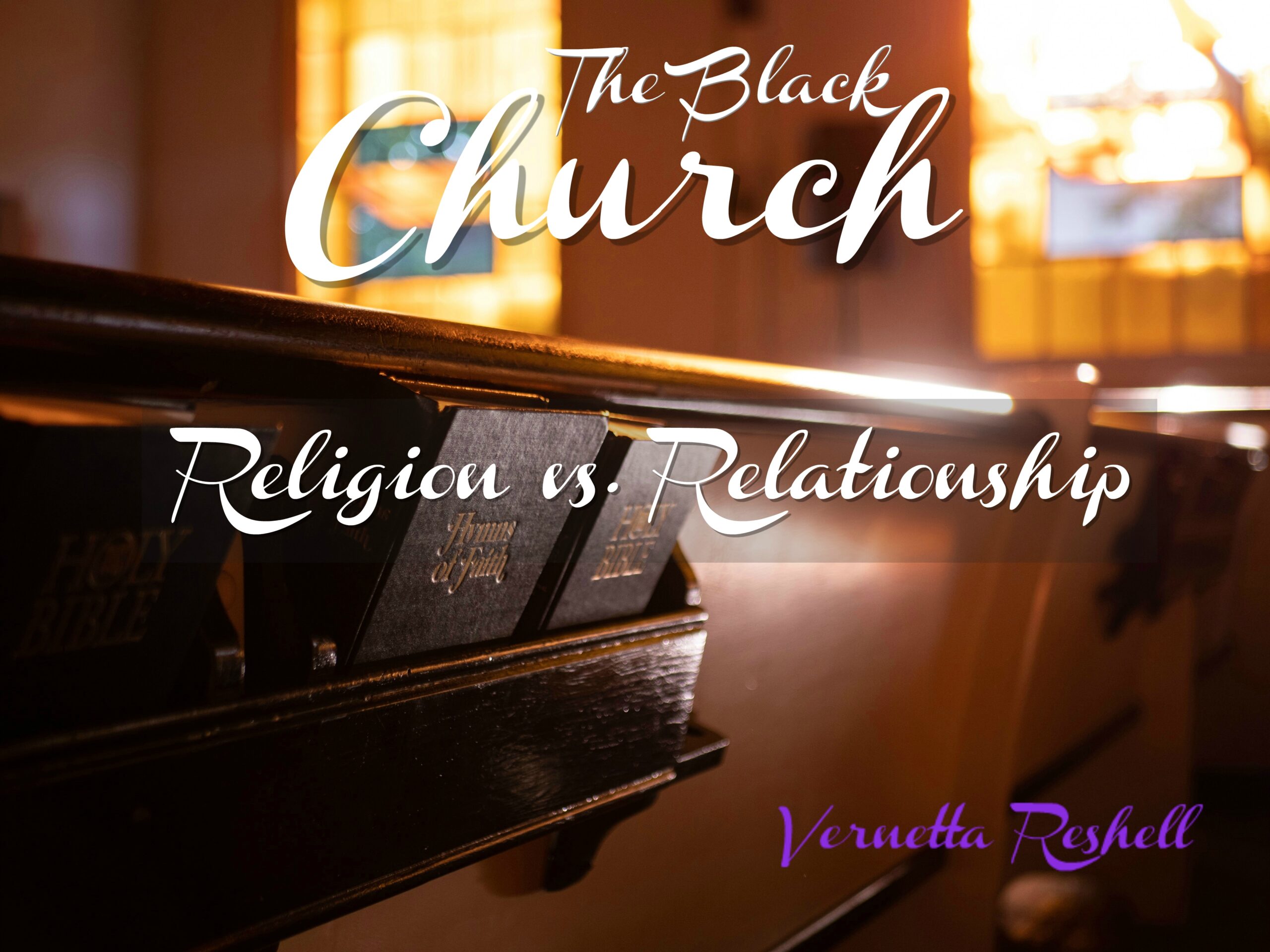The DNA of the Black Church wouldn’t exist without the church itself. This week we explore how the church became “too heavenly minded to do any earthly good” (fyi there’s no scripture in the Bible referencing this phrase, it’s just a phrase we use) and lost relationship along the way. Why it’s important to teach its members how to develop their own relationship with God and not use religion as a shield when we see wrong happening in the world.
The term “the black church” evolved from the phrase “the Negro church,” the title of a pioneering sociological study of African American Protestant churches at the turn of the century by W.E.B. Du Bois.
W.E.B. Du Bois immortalized these men in his famous essay, “Of the Faith of the Fathers,” that appeared in his seminal work, The Souls of Black Folk. Du Bois described the preacher as “the most unique personality developed by the Negro on American soil,” a man who “found his function as the healer of the sick, the interpreter of the Unknown, the comforter of the sorrowing, the supernatural avenger of wrong, and the one who rudely but picturesquely expressed the longing, disappointment, and resentment of a stolen and oppressed people.”
These new, Black churches created communities and worship practices that were culturally distinct from other churches, including forms of Christian worship that derived from African spiritual traditions. These churches also became the centers of communities, serving as school sites, taking up social welfare functions such as providing for the indigent, and going on to establish orphanages and prison ministries.
Source: The Black Church
Today the Black church has been selling Jesus not sharing Jesus’ thoughts, actions nor behavior. The prosperity gospel derived from Evangelicalism has seeped down deep into the trenches of theologies practiced at way too many Black Churches. There’s nothing wrong with money. But the love of money has become the leading force in how the church operates.
I agree with this definition from Sojourner. “Christianity is the religion that proclaims a God who humbled himself and entered into creation, taking the form of a servant —who touched the untouchables and spoke sharp truth that exposed those in power. Christianity is a religion centered on the subversive power of love and sacrifice, not power and wealth.” Unfortunately, when people hear the word Christianity today, they equate it with the behavior of power and wealth being the foundation. Not true for the origins of this religion but true for what’s been heavily pushed the past 50 or so years about this religion.
I want to go into a little rant on my observation and perspective of what I see Christianity is today and why I believe relationship is sorely lacking in Black churches. I was born and raised in the church but left for 15 years. Now I’m back. So, I have a unique viewpoint from both inside and outside of the Black church.
Many people have stopped going to church because religion has become an oppressive tool to subject people into groupthink, silencing voices against injustice and allowing hypocrisy to reign among leaders who don’t want to be held accountable. Religion and church have become synonymous with restrictive living and forced ideologies. However, Generation X and Millennials are pushing back.
Yes, we can live Christian values without chastising people into submission. More important to Jesus is how we’re living not that we’re following some script the church has thrust upon us. Instead we must share Jesus’ principles of loving thy neighbor (yes, that includes the LGBTQ+ community), speaking truth (yes, that includes telling people what they need to hear), fighting injustice (yes, that includes saying racism and racists are not Christlike) and studying the Bible (yes, that means you actually open it and read it for yourself) just to name a few. Whether people are in church or not, these beliefs have expanded past the boundaries of the building. While many of Jesus’ principles have spilled over into communities near and far, the church doesn’t seem like the center of that expansion anymore.
Rev. Lacey K. Williams of Olivet Baptist Church, the oldest Baptist church in Chicago in an essay published in the Chicago Sunday Tribune in 1929, Williams argued that black churches must respond to the practical and spiritual needs of people struggling to adjust to urban life; the churches must be “passionately human, but no less divine.”
Source: The Black Church
Instead it seems more church leaders are worried about the finances of the church to keep their salaries because they’ve gotten comfortable living well instead of doing well for others. Greenleaf may have been a T.V. show (a well-written one I might add) but it did expose the worst which many people believe is all churches. The churches that think they are doing good in the community but talk down to people, act superior and gossip about other people and/or churches are just as bad. That behavior is not all churches though.
The churches that are doing the work have developed relationships with their members, community they worship in and community leaders. We need to know more about those churches. Instead gossip reigns and people love to say anything horrible they can about religion and church when someone is caught not doing as Jesus would.
Churches that teach the Bible purely have members who have developed their own relationships with God. When churches have taken the time to focus on people’s souls the good works just oozes out of the church because members will see where they can step in to help the church and the community. They won’t feel like paying tithes is obligatory or will get them into Heaven. Which by the way, it won’t. Doesn’t work like that. But paying tithes is a tool that can allow the church to help more people because more resources will be available to use.
Relationship also helps us believe that women are not second-class citizens in the church. Jesus worked with women throughout his ministry. And not once did he push them aside due to their gender. After his death and resurrection, women were still active with expanding his ministry and principles into new regions. But patriarchy has come along over the centuries to destroy equality among genders. Jesus didn’t display that attitude in his life. People who read the Bible for themselves will know this to be against Jesus. To read the Bible will help you develop a relationship with God that transcends the religion and usher you into His presence.
Black Church is distinct, but each domination has its own flavor or lack thereof. I’m just saying. However, they all suffer from not allowing women to widely hold executive leadership positions in the church nor the domination executive boards. While some women are on the executive boards they aren’t leading the denomination. I can’t think of or found one denomination that has been led by a woman. And very few churches are led by a woman. Most churches are planted by men. I’m saying this to show that women may be the more active ones in church, yet leadership has not reflected it. I love this speech I found by Nannie Burroughs as she was a champion of women taking active leadership roles in the early twentieth century.
Nannie Burroughs, who served as corresponding secretary of the Woman’s Convention of the National Baptist Convention, U.S.A. In a major address to the NBC delivered in 1920, Burroughs chastised black ministers:
We might as well be frank and face the truth. While we have hundreds of superior men in the pulpits, North and South, East and West, the majority of our religious leaders have preached too much Heaven and too little practical Christian living. In many, the spirit of greed, like the horse-leach, is ever crying, “Give me, give me, give me.” Does the absorbing task of supplying their personal needs bind leaders to the moral, social and spiritual needs of our people?
Men, she argued, must welcome women into the affairs of government. Women must organize and educate. “There will be protest against politics in the Church,” she predicted, but insisted, “It is better to have politics than ignorance.”
Source: The Black Church
Nannie understood where the future of the church was headed. Women need a more active role in leadership, politics would become integral in the Black church and more leaders would be obsessed with appearance and wealth than doing good works for the community.
This interview about the Black Church with Dr. Yolanda Pierce, Professor and Dean of the School of Divinity at Howard University, is a great mini lesson on the history of the Black Church to sum up how the DNA of the Black church came to be.
Sources
- https://www.pbs.org/wgbh/americanexperience/features/godinamerica-black-church/
- https://www.kcrw.com/culture/shows/life-examined/religion-slavery-black-lives-matter/yolanda-pierce-interview-black-church
- https://sojo.net/articles/letters-dying-church/dying-church-millennial
- https://www.theatlantic.com/politics/archive/2020/10/why-black-parishioners-are-leaving-churches/616588/ https://faithcommunitiestoday.org/historically-african-american-denominations/


Leave a Reply